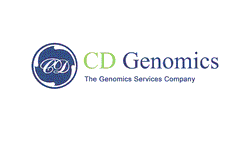Cancerous Mutation Articles & Analysis
13 articles found
Another critical regulator is the retinoblastoma protein (Rb), which prevents cells from entering the S phase until they are ready. When mutated, Rb loses its ability to control division, often leading to cancer. ...
In response to the emerging needs in global healthcare, SOPHiA GENETICS has just revealed the New Generation SOPHiA DDM™ Platform, aiming to stay at the forefront of precision medicine and address today the healthcare needs of tomorrow. ...
Early detection and regular screening are pivotal in perfecting outcomes for patients with breast cancer. Why Breast Cancer Occurs Breast cancer occurs when normal cells in the breast tissue suffer gene mutations that cause them to grow and multiply in an uncontrolled manner. ...
CDH1 loss is particularly significant in epithelial cancers, such as breast, gastric, and colorectal cancers. In breast cancer, for example, the loss of CDH1 expression is associated with a more aggressive phenotype and poorer prognosis. ...
Essentially, it uses a "vacuum cleaner" to clean up errors and remove pre-cancerous material from cells. But if it's mutated, CDK13 can't do its job of RNA surveillance and basically clears out the junk. ...
These large, complex molecules bind to their targets in unique ways, are efficiently taken up by cells, and have the potential to be used to create new drugs to treat cancer and other diseases. Through a combination of functional genomics and chemical approaches, the scientists discovered an endogenous pathway involving interferon-induced transmembrane (IFITM) proteins that ...
Glioblastoma is a deadly brain cancer with a dire prognosis. Unlike most cancers, it still grows in the presence of the p53 protein. ...
Cancer is a heterogenous mixture of diseases characterized by, among other things, the abnormal, uncontrolled growth of cells derived from otherwise healthy tissues (Hanahan 2022). Although cancer cells sometimes grow into balls of cells and stop there (so-called benign tumors), often they gain the ability to disperse throughout the body, seed the growth of other tumors, disrupt the function of a ...
Pancreatic cancer is a highly malignant digestive system tumor, and the five-year survival rate of patients after diagnosis is only about 10%. ...
Genetic mutations in cells are an important cause of cancer development, progression, and drug resistance. ...
Abstract The oncogene Ras and the tumor suppressor gene p53 are frequently co-mutated in human cancer and mutations in Ras and p53 can cooperate to generate a more malignant cell state. To discover novel druggable targets for cancers carrying co-mutations in Ras and p53, we performed arrayed, kinome focused ...
As cancer-related mutations are cumulatively being identified and characterized, the variety of cancer gene panels is increasing. ...
In fact, these devices have demonstrated the ability to detect a variety of analyses such as particular DNA sequences, cancer biomarkers and larger entities such as viruses. The principle of sensing is based on the variation of conductivity resulting from a disturbance of charge on the surface of the SiNW–FET. In this study, we have used two different processes for surface ...









